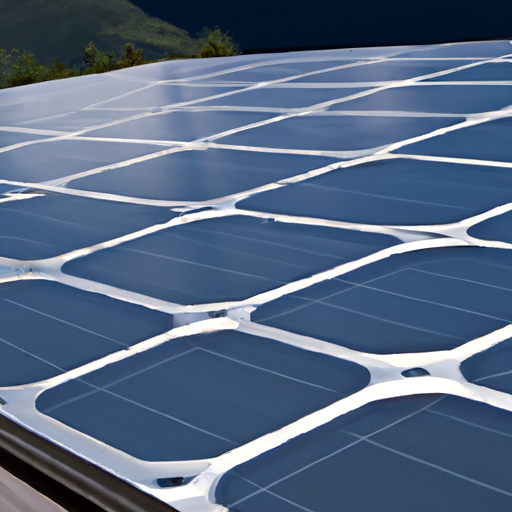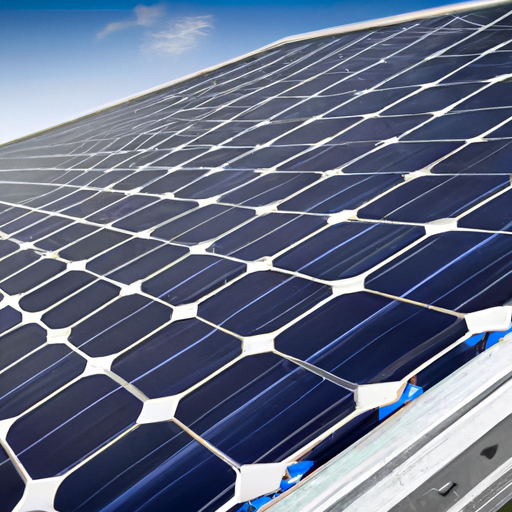Do you ever wonder how much power a 300W solar panel can produce for your off-grid lifestyle? It’s a common question among those who aim to live off the grid and rely on renewable energy sources. Whether you’re considering installing solar panels or simply curious about their efficiency, you’ve come to the right place. In this article, we will delve into the details of a 300W solar panel’s power output and its suitability for daily off-grid usage. So, let’s unravel the mystery and find out just how efficient these solar panels can be.
Living off-grid is a lifestyle that many people are embracing, as it allows them to be self-reliant when it comes to their energy needs. Solar panels are a popular choice for off-grid living, as they harness the power of the sun and convert it into usable electricity. But how much power can a 300W solar panel actually generate in a day? The answer depends on various factors, such as sunlight intensity, weather conditions, and the panel’s orientation. However, on average, a 300W solar panel can produce around 900-1,200 watt-hours (Wh) of electricity per day. Not too shabby, huh?
Now, you might be wondering whether a 300W solar panel can meet your daily off-grid energy requirements. Well, that depends on your specific needs and lifestyle. If you’re a minimalist who is conscious of your energy consumption, a 300W solar panel might be more than enough to power your essentials, such as lights, small appliances, and electronics. However, if you have a larger load, such as running major appliances or powering a homestead, you might need multiple 300W solar panels or a higher wattage panel to meet your energy demands. But don’t worry, we’ll explore more about maximizing power output and finding the right solar setup for your off-grid needs in the upcoming article. So keep reading!
In conclusion, a 300W solar panel can be an efficient choice for daily off-grid usage, providing you with a substantial amount of power. Its output can vary depending on various factors, but on average, it can generate around 900-1,200 watt-hours of electricity per day. Whether it’s sufficient for your off-grid needs depends on your lifestyle and energy requirements. In the next article, we’ll go deeper into maximizing power output and finding the most efficient setup for your off-grid lifestyle. So stay tuned, and let’s explore the world of solar energy together!

Maximizing Power Output: How Efficient Is a 300W Solar Panel for Daily Off-Grid Usage?
Introduction
Living off-grid has gained popularity in recent years as people seek a more sustainable and self-sufficient lifestyle. One of the key elements of off-grid living is the use of renewable energy sources, such as solar panels, to provide electricity. Solar panels are an excellent choice for off-grid power generation, but how efficient are they? In this article, we will explore the factors that affect the power output of a 300W solar panel and how to maximize its efficiency for daily off-grid usage.
Understanding Off-Grid Living
Living off-grid means being disconnected from the traditional power grid and relying on alternative sources of energy. By utilizing renewable energy sources like solar panels, individuals and households can generate their own electricity and reduce their carbon footprint. Off-grid living often requires careful planning and consideration of power needs, as well as understanding how to optimize power generation and usage.
Factors Affecting Power Output of Solar Panels
Several factors can affect the power output of a solar panel, including:
Sunlight availability: Solar panels generate electricity by converting sunlight into energy. The amount of sunlight available in a particular location and its intensity plays a significant role in determining the power output.
Angle and orientation: The angle at which the solar panel is installed and its orientation with respect to the sun can greatly impact the amount of sunlight it receives. Ideally, a solar panel should be positioned at an angle that maximizes its exposure to sunlight throughout the day.
Temperature: Solar panels operate most efficiently at lower temperatures. High temperatures can reduce their output significantly. Thus, it is important to consider the climate and temperature variations in the area where the panels are installed.
Calculating Daily Power Generation of a 300W Solar Panel
To estimate the daily power generation of a 300W solar panel, you need to consider the factors mentioned above. On average, a 300W solar panel can generate around 1.2 kWh (kilowatt-hours) of electricity per day. However, this is not a fixed value and can vary based on location, sunlight availability, and other factors.
Efficiency of a 300W Solar Panel
Efficiency is a crucial factor when considering the effectiveness of a solar panel. It refers to the panel’s ability to convert sunlight into electricity. A higher efficiency panel can generate more power using the same amount of sunlight compared to a lower efficiency one.
Most modern solar panels offer an efficiency of around 15% to 20%. This means that a 300W solar panel with an efficiency of 15% will convert 15% of the available sunlight into electricity, resulting in an actual power output of 45W (300W x 0.15).
Optimizing Power Output in Off-Grid Scenarios
To maximize the power output of a 300W solar panel for daily off-grid usage, consider the following tips:
Proper installation: Ensure that the solar panel is positioned at the optimal angle and orientation to receive the maximum amount of sunlight.
Regular cleaning: Dirty solar panels can reduce their efficiency by blocking sunlight. Clean the panels regularly to remove dust, debris, and other obstructions.
Shade management: Avoid shading the solar panels as it can significantly reduce their efficiency. Trim any trees or obstructions that might cast shadows on the panels.
Monitoring and maintenance: Keep an eye on the performance of your solar panel and conduct regular maintenance to ensure its optimal functioning.
Battery Storage and Energy Management
In off-grid scenarios, energy storage is crucial for continuous power supply. Installing a battery storage system allows you to store excess electricity generated during the day for use during the night or when sunlight is limited. This helps maximize the utilization of the power generated by the solar panel and ensures a steady supply of electricity.
Utilizing Power Inverters for Off-Grid Usage
Power inverters are essential components in off-grid systems as they convert the direct current (DC) generated by solar panels into usable alternating current (AC) electricity. They enable you to power appliances and devices that require AC power, making your off-grid lifestyle more convenient. When choosing a power inverter, consider its capacity and efficiency to match your power requirements.
Impact of Weather Conditions on Power Output
Weather conditions, such as clouds, rain, and snow, can affect the power output of solar panels. Cloudy or overcast days result in reduced sunlight exposure, leading to lower power generation. Similarly, rain and snow can block sunlight and temporarily reduce the efficiency of the panels. Understanding the climate in your area and accounting for these weather conditions can help you plan for variations in power output.
Conclusion
Maximizing the power output of a 300W solar panel for daily off-grid usage requires careful consideration of various factors. By optimizing the installation, monitoring performance, and utilizing energy storage, you can make the most of your solar panel’s efficiency. Investing in a high-quality solar panel with a good conversion efficiency is also crucial for maximizing power generation. As you embark on your off-grid journey, remember to adapt and adjust to the weather conditions and invest in proper maintenance to ensure a consistent and efficient power supply for your daily needs. Happy off-grid living!





